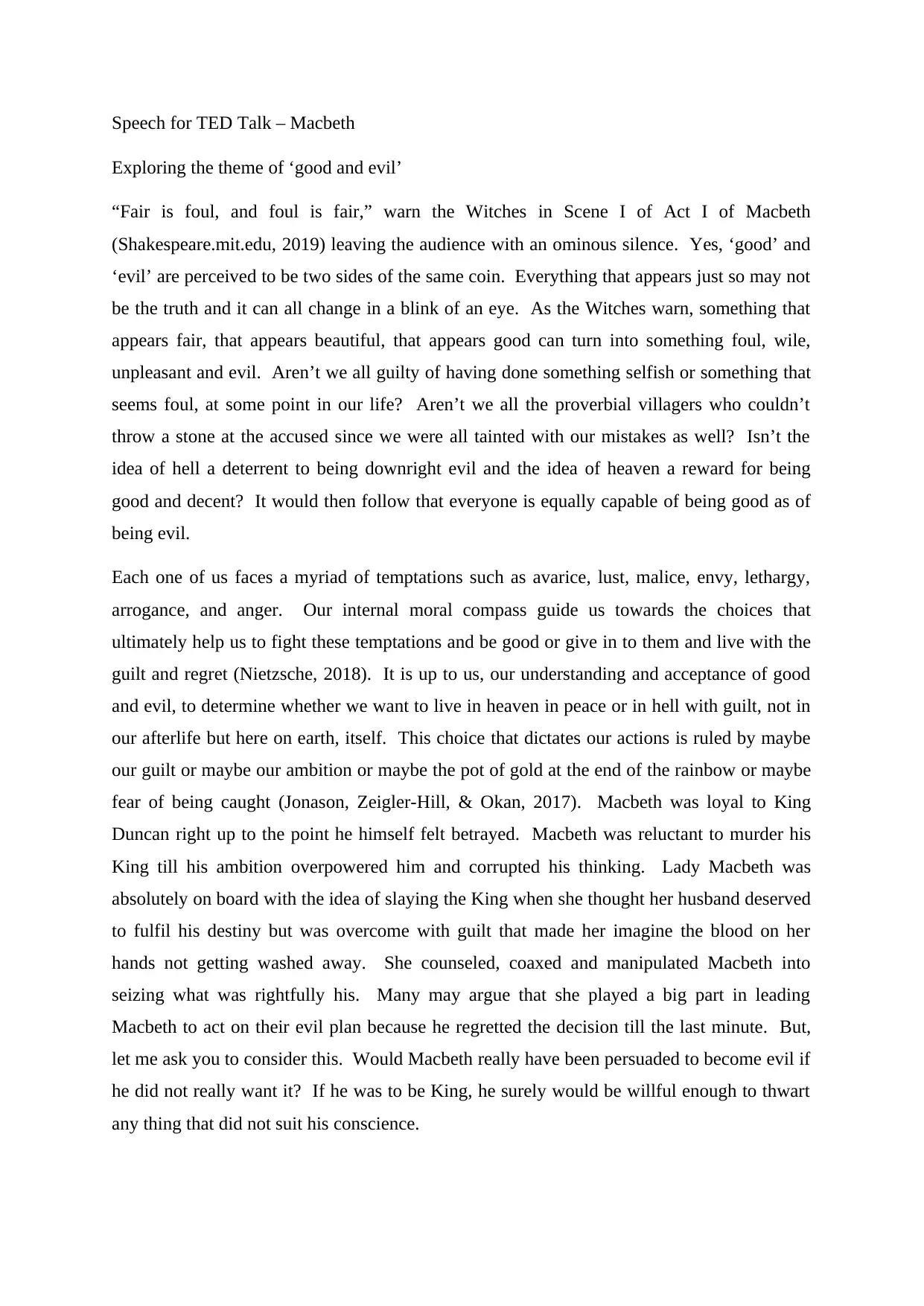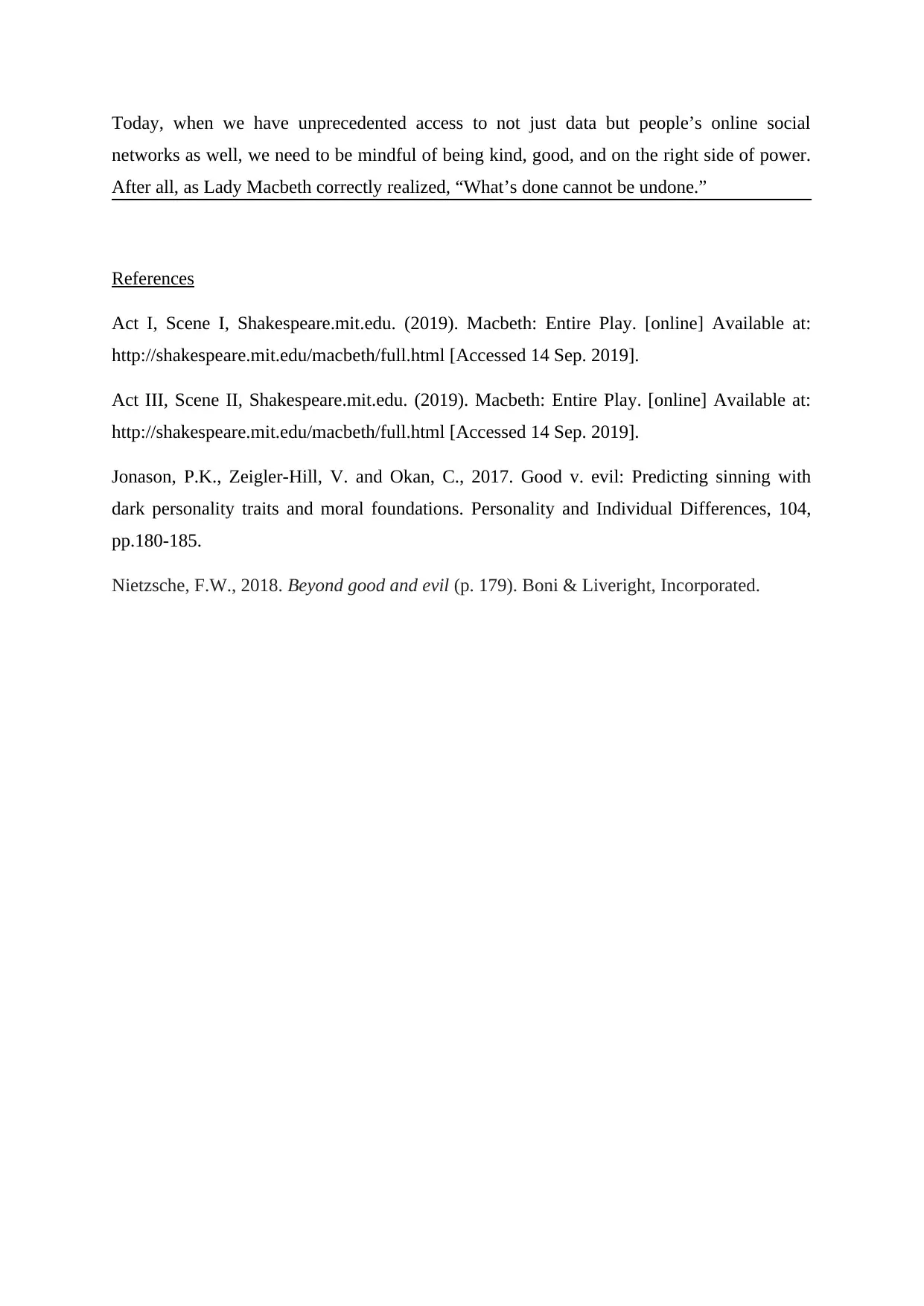TED Talk Speech: Analyzing the Theme of Good and Evil in Macbeth
VerifiedAdded on 2022/11/10
|2
|721
|306
Creative Assignment
AI Summary
This assignment is a speech designed for a TED Talk, focusing on the exploration of the theme of 'good and evil' as presented in Shakespeare's play, Macbeth. The speech begins with the ominous quote from the Witches, 'Fair is foul, and foul is fair,' setting the stage for an examination of the duality of human nature and the ease with which appearances can deceive. The speech delves into the internal struggles of characters like Macbeth and Lady Macbeth, highlighting the influence of ambition, guilt, and external temptations such as avarice and malice. The author argues that everyone is capable of both good and evil, and that our choices are guided by our moral compass and the consequences of our actions. Referencing the play, the speech examines Macbeth's transformation and Lady Macbeth's manipulation, ultimately posing the question of whether Macbeth truly desired to be evil. The speech concludes by emphasizing the importance of kindness and making good choices, as actions have lasting consequences, drawing on the play's tragic ending as a cautionary tale. The speech also references research and academic sources to support its arguments.
1 out of 2



![[object Object]](/_next/static/media/star-bottom.7253800d.svg)